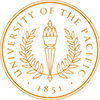Are you ready to take your education to the next level and study abroad? One of the first steps you’ll need to take is demonstrating your English language skills. The IELTS (International English Language Testing System) exam is one of the most widely accepted tests for studying abroad, and it’s designed to assess your proficiency in reading, writing, listening, and speaking.
Whether you’re looking to study at the undergraduate or graduate level, IELTS can help you achieve your goals and open up new opportunities for your future. By putting in the effort to prepare for the exam and demonstrating your language skills, you can increase your chances of being accepted into a top university and start your journey toward a successful international career.
Continue reading as we give tips on how to prepare for the IELTS to study in Canada.
What is IELTS?
The International English Language Testing System (IELTS) is a widely accepted English language proficiency test for studying abroad. It is used by universities, employers, and immigration authorities around the world to assess the English language skills of non-native speakers.
IELTS is important for studying abroad because many universities and programs have specific requirements for English language proficiency. By taking IELTS (or another English language proficiency test), you can demonstrate that you have the necessary language skills to succeed in your studies.
There are two versions of the IELTS test: the Academic version and the General Training version. The Academic version is intended for students who want to study at the undergraduate or postgraduate level, while the General Training version is intended for those who want to work, study, or migrate to an English-speaking country.
The IELTS test consists of four sections: reading, writing, listening, and speaking. It is designed to assess a wide range of language skills, including grammar, vocabulary, pronunciation, and comprehension.
To take the IELTS test, you will need to register in advance and pay a fee. The test is offered at authorized test centers around the world on a regular basis. You will receive your test results in the form of a score, which is based on your performance in each of the four sections of the test.
Do I need IELTS to study in Canada?
IELTS is one of the most recognized English language proficiency tests for studying in Canada. Many universities in Canada require international students to provide proof of English language proficiency, and IELTS is a common way to do this.
However, the requirement for IELTS (or another English language proficiency test) can vary depending on the institution and program you are applying to. Some programs may have different requirements or may accept other tests in addition to IELTS.
It’s important to check with your chosen institution about their specific requirements for English language proficiency. If you are required to take IELTS (or another test), it’s important to prepare for the test and aim for a score that meets the requirements of the program you are interested in.
Tips for Preparation in IELTS for Canada
Here are a few tips for preparing for the IELTS and how you can improve your IELTS score for Canada:
Familiarize yourself with the format of the test
Make sure you understand the structure and format of the test, including the types of questions you will be asked and the time limits for each section. This will help you manage your time effectively during the test.
The IELTS test consists of four sections: reading, writing, listening, and speaking. Each section has its own time limits and is designed to assess different language skills. By understanding the format of the test, you will know how much time you have for each section and how to allocate your time accordingly.
Knowing the format of the test can also help you understand the types of questions you will be asked and the types of tasks you will need to complete. This can help you feel more prepared and confident on test day.
Practice, practice, practice
The more you practice, the more comfortable you will become with the test format and the types of questions you will be asked. Look for practice tests or sample questions online, or consider enrolling in a test preparation course.
Practice can help you develop a better understanding of the skills being tested and improve your performance on the test. By practicing, you can get a feel for the types of questions you will be asked and the types of tasks you will need to complete. This can help you manage your time effectively during the test and feel more confident on test day.
In addition, practicing can help you identify areas where you need to improve. By focusing on your weaknesses and working on them through practice, you can increase your chances of success on the IELTS test.
Work on your weaknesses: Identify the areas of the test where you need the most improvement and focus your efforts on those areas. For example, if you struggle with grammar, spend more time practicing grammar exercises.
Build Your Vocabulary
A strong vocabulary is key to performing well on the test. The IELTS test measures a wide range of language skills, including grammar, vocabulary, pronunciation, and comprehension.
Having a strong vocabulary can help you understand the reading and listening passages on the test and express yourself clearly in the writing and speaking sections. A wide range of vocabulary can also help you score higher on the test, as it shows that you have a good command of the language.
To build your vocabulary, try to learn new words and phrases on a regular basis. Read a variety of materials, such as books, newspapers, and magazines, and try to use new words and phrases in your writing and speaking. You can also try using a vocabulary-building app or joining a language-learning group to help you learn new words.
Get Plenty of Rest
Make sure you get a good night’s sleep before the test. Being well-rested will help you stay focused and perform at your best on test day. The IELTS test is a long and demanding exam, and getting enough sleep before the test can help you feel more alert and energized.
Lack of sleep can affect your memory, attention, and problem-solving skills, which can negatively impact your performance on the test. By getting plenty of rest, you can help ensure that you are well-prepared and ready to do your best on test day.
To get a good night’s sleep before the test, try to establish a regular sleep schedule, avoid caffeine and other stimulants before bed, and create a relaxing bedtime routine.
Overall, by following these tips and putting in the necessary effort, you can increase your chances of performing well on language proficiency tests. While IELTS for Canada is a commonly required test for studying in the country, it’s important to check the specific requirements of the institution and program you are applying to. Gather more key information on studying abroad by reading through MSM Unify.
















































